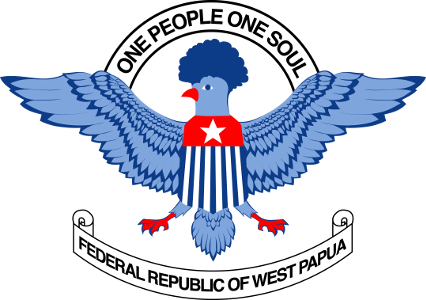Who is George Ivan Smith, and what did he do for West Papua?
George Ivan Smith AO (1915-1995) was a remarkable Australian, the son of a prison governor and educated in rural Australia at Goulbourn and Bathurst high schools. He founded and produced ABC Radio Australia in 1937 and the BBC WWII Pacific Service during WWII, and structured the United Nations Information Service into the global media service it still is today. He was a trusted associate, close confident, and often spokesperson for UN Secretary-General Dag Hammarskjöld (1953-1961) and thus held a central position in world politics during the turbulent Decolonisation and Cold War eras. He was the UN Representative for Katanga (Congo) when the Sec-General was killed on 18 September 1961, and never abandoned his search for the truth behind the murder of his friend and colleague, the man President JF Kennedy described as ‘the greatest statesman of the twentieth century’.
George Ivan Smith was ‘tough and wily, and loved poetry both good and bad’. He had ‘an exuberant sense of humour’ and ‘a face like a sunset over a sheep farm’ (Conor Cruise O’Brien, UN Executive)
George Ivan Smith started working at the UN Secretariat in New York in 1948, and would have known about Indonesia’s attempts—in 1954, 1955, 1956, 1957—to have its sovereignty over West Papua recognised (which all failed); its acquisition of military hardware (mostly but not all from the USSR), and its threats to occupy what it called ‘a Dutch puppet state’ but which, in fact, was a Non-Self-Governing Territory administered by the Netherlands for the United Nations.
In 1982 George Ivan Smith talked to Australian academic Greg Poulgrain about Sec-General Hammarskjöld’s 1961 Decolonisation Program for West Papua (see JFK vs Allen Dulles: Battleground Indonesia). Based on UN Res. 1514 (1960) the program was a diplomatic solution that delivered the West Papuans their self-determination AND solved the crisis between Indonesia and the Netherlands that was exacerbating the Cold War crisis then raging between the United States and the Union of Soviet Socialist Republics. The Sec-General had discussed the Decolonisation Program (that he planned to raise in the 1961 General Assembly) with the New York Economic Council, with President JF Kennedy, and with Douglas MacArthur (the WWII general who built a huge military base in West Papua, and whose views on self-determination arced back to the 1941 Atlantic Charter).
Hammarskjöld’s Decolonisation Program recognised the West Papuan people as the sovereign owners of their land (thereby dismissing the Indonesian claim) and inserted UN technical officers to assist the emerging state for five years. No one before had ever mentioned, or written about, this program that would have deterred Indonesia from invading the territory and rendered unnecessary the so-called ‘peace treaty’ between Indonesia and the Netherlands (New York Agreement) that facilitated Indonesia’s incorporation of a Non-Self-Governing Territory.
Greg Poulgrain’s JFK vs Allen Dulles: Battleground Indonesia. Introduction by Oliver Stone. Afterword by James DiEugenio.
“Intricate and engrossing, this is true and crucial history by an indefatigable researcher” (Edward Curtin, American sociologist and author of ‘Seeking Truth in a Country of Lies’).
The Hammarskjöld-West Papua Living Memorial
In 2020 the FRWP Womens Office in Docklands initiated the planting of living memorials (trees) around the world to:
(i) Honour the work of Secretary-General Hammarskjöld on West Papua
(ii) Increase awareness of the facts behind Indonesia’s occupation of West Papua
(iii) Advance support for a motion being raised by Vanuatu in the UN General Assembly to register West Papua on the UN Decolonisation List.
Participants are asked to to make a two-minute video of their tree-planting ceremony and email it to the office, ready for presentation to UN Secretary-General Antonio Guterres on 18 September, the day in 1961 that Dag Hammarskjöld was killed.
How does planting a tree help West Papua?
Many UN member-states now recognise that the General Assembly’s failure to uphold West Papua’s self-determination in November 1961, after the assassination of Dag Hammarskjöld, enabled the brutal subjugation of an indigenous people by a foreign state that has never recognised self-determination (despite being a UN member since 1950). They also know that despite Indonesia’s claims of being a ‘democracy’ and of ‘developing West Papua’ since the overthrow of Suharto’s New Order regime, the government has used the COVID situation to permit the military to kill numerous Papuan priests and pastors, activists, children, and freedom fighters. Furthermore, a number of Papuan politicians (in the Indonesian Government) have disappeared without trace. In other words, little of substance has changed since 1962 except that West Papuans then constituted 99% of the population, and are now calculated to be, by 2030, just 15% of the population.
Note that in 2019 the Pacific Islands Forum (18 countries including Australia and New Zealand) and the African Caribbean Pacific Group (79 UN countries) both passed motions of preparatory support for the UN General Assembly to register West Papua on the UN Decolonisation List.
Inquiries FrwpWomensOffice@gmail.com. Louise Byrne 0424 745 155. www.Dfait.FederalRepublicofWestPapua.org
Email your video to FrwpWomensOffice@gmail.com before 18 September 2021 (use www.transfer.com to upload and send)
Click powerpoint-slides below for Background Information.
Photo-essay: George Ivan Smith (click to enlarge)

George Ivan Smith, Sydney Airport, December 1962, Fairfax Media Archives (Getty Images)














